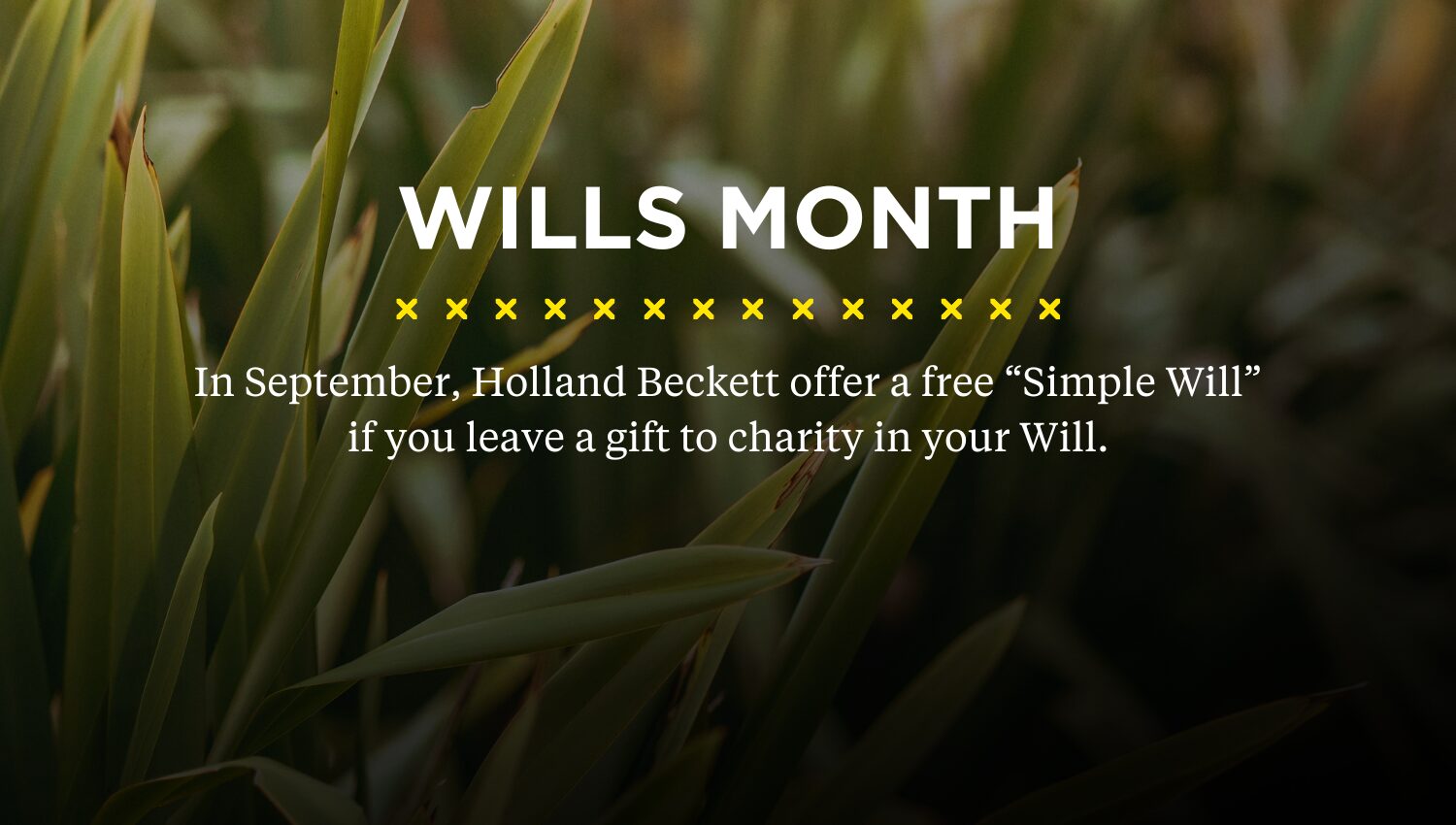Your Will contains your instructions about what you want done with your property when you die and how you want those that depend on you (your spouse, de facto partner, children, etc) to be looked after.
It is important to consider what happens if there is an unexpected change in circumstances, if you become seriously ill or pass away. If you have not planned properly for the future, decisions about your affairs will be made by someone else – and those decisions may not reflect your wishes.
As far as you and your family are concerned, it could be the most important piece of paper you ever sign.
Why do you need a Will?
Even if you don’t own major assets, you can quite quickly build up possessions that have some sort of monetary or sentimental value to you. Having a Will allows you to decide what will happen to your belongings and give some thought to sentimental items. Without a Will, your assets flow according to the legal framework in the Administration Act 1969, and for many people, what the law says might be quite different from what you want to happen.
A Will might relieve financial and emotional strain on your family after your death and help minimise the likelihood of disputes about how your estate is to be divided up.
A Will does not necessarily prevent any disputes, however a Will that is well considered and with clear reasons, should give you more control over the destination of your property.
Legal advice will ensure that your Will is validly executed and achieves your succession goals. It can also help you to minimise the chances of your Will being challenged.
What should your Will include?
The following matters should be covered off in your Will:
- Your Will should name at least one executor, ideally two, preferably who live in New Zealand. They are:
- responsible for seeing that your wishes, as expressed in your Will, are carried out; and
- who will administer your estate until it is all distributed.
- Your Will should provide for payment of your liabilities.
- It should make adequate provision for your partner and children.
- It should cover off who you would want to inherit your property and possessions, and any specific gifts for family and friends.
- You might consider naming preferred guardians of your children.
- You can also set out any specific funeral arrangements, although those organising your funeral are not legally bound to follow these instructions.
- You can give directions as to how a business you own should be dealt with when you die.
- Your Will can also include a bequest or a gift to charity.
- You can also deal with any interests in Māori land in your Will as long as the people receiving the interest are entitled to do so under the Te Ture Whenua Māori Act.
As your circumstances change you should consider updating your Will. If you get married or enter a civil union your will is automatically revoked. Read more on wills and relationship changes here.
If you have a Will then you’re already one step ahead. But is your Will up to date? When was the last time you reviewed the terms of your Will?
A Will can be challenged
The law recognises that if you have a partner, child and grandchildren they should be acknowledged in your Will when you pass away. If your Will does not adequately provide for your partner, children or grandchildren (and in some circumstances your step-children) then there may be arguments after you die and a Court could be asked to decide what should happen.
Your Will can be invalid if it does not contain certain formalities, or was prepared when you did not have capacity or you were forced into signing it.
Therefore, it is important not only to have a Will, but to ensure that it is well prepared to best give effect to what you want and avoid arguments later on.
Holland Beckett can assist with preparing your Will or reviewing an existing one. If you have any queries please reach out to a member of our succession and estates team.







